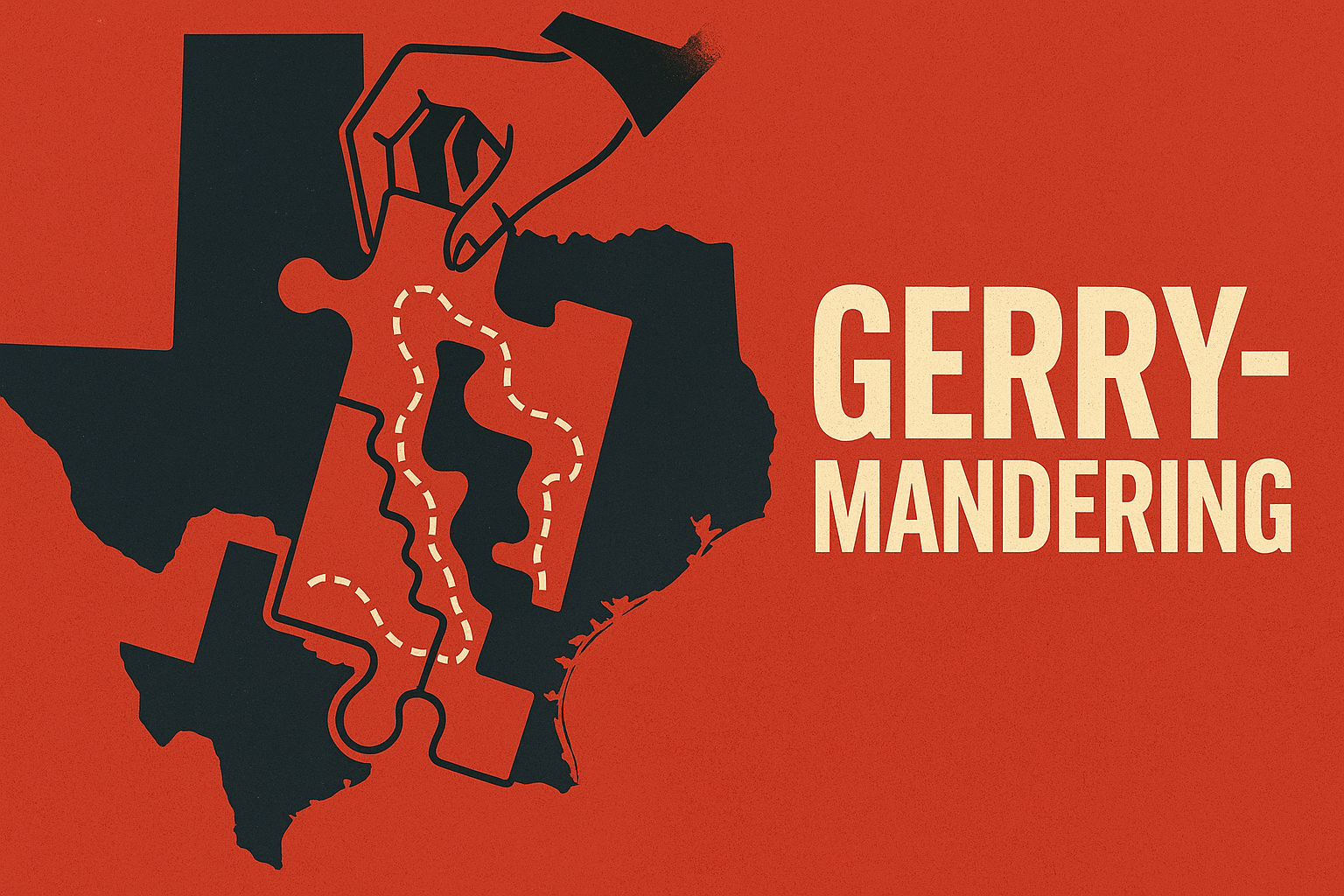A controversial redistricting initiative in Texas, backed by former President Donald Trump, has ignited a fierce political battle that threatens to reshape the U.S. electoral landscape ahead of the 2026 midterm elections. The dispute over congressional maps is intensifying partisan divisions, drawing in both Democratic and Republican leaders from across the country.
Trump, speaking in a recent television interview, urged Texas Governor Greg Abbott to push forward with a redrawing of congressional districts that could secure up to five additional Republican seats. The former president emphasized his support by saying, “We have an opportunity in Texas to pick up five seats… We are entitled to five more seats.”
A Polarizing Plan
Governor Abbott’s proposal has drawn harsh criticism from Democrats, who view the effort as a blatant power grab that would diminish the political representation of left-leaning and minority communities. The plan has also fueled fears of a broader partisan arms race in redistricting, with Democratic leaders in New York and California vowing to retaliate by reshaping their own congressional maps to benefit their party.
“The redistricting fight is another blow to the forces of good government, moderation and democracy,” said Matt Dallek, professor of political management at George Washington University. “It’s becoming an all-out political war.”
The Texas conflict escalated when Democratic lawmakers fled the state to prevent the legislature from reaching a quorum to pass the redistricting bill, prompting Abbott to threaten them with arrest. Meanwhile, Democratic governors elsewhere are signaling they will meet Republicans “fire with fire.”
Growing National Fallout
New York Governor Kathy Hochul declared her state would respond in kind, stating, “If Republicans are willing to rewrite these rules to give themselves an advantage, then they’re leaving us no choice. All is fair in love and war.” Similarly, California Governor Gavin Newsom said the state may pursue changes that favor Democrats, sparking criticism from both Republicans and fellow Democrats, including former Governor Arnold Schwarzenegger, who has long opposed gerrymandering.
The Legal and Political Stakes
Under the U.S. system, congressional redistricting is controlled by state governments, with few federal constraints beyond population equality and protections under the Voting Rights Act of 1965. This gives partisan legislatures wide latitude to draw district boundaries in ways that can advantage one party — a practice known as gerrymandering.
Vice President JD Vance is reportedly planning to travel to Indiana to encourage Republican lawmakers there to adopt similar redistricting efforts aimed at increasing GOP representation.
Political analyst Elaine Kamarck, from the Brookings Institution, observed, “The country is so polarized… States are doing dramatically different things in response to Trump. It’s not a race to the bottom, it’s a race to winner-takes-all politics.”
Electoral Impact and Uncertainty
Both parties view the midterms as critical. Democrats are aiming to reclaim control of the House, currently held by Republicans with a slim majority. Trump’s approval ratings have declined in recent months, and Democrats currently lead by 2.9 percentage points in generic congressional polling, according to RealClearPolitics.
Despite Trump’s confidence, experts say the Texas redistricting plan may not guarantee the Republican gains he seeks. Erin Covey, an analyst at the non-partisan Cook Political Report, noted, “The map assumes Latino voters will continue shifting toward the GOP, but without Trump on the ballot, turnout may soften.”
Undermining Democratic Norms?
As states brace for potential tit-for-tat changes to congressional maps, concerns are mounting about the long-term implications for democratic institutions. Analysts warn that continued politicization of redistricting could further erode public trust in the electoral process.
“This battle isn’t just about Texas,” said Dallek. “What’s different now is the national scope of a redistricting war that may weaken the foundations of democratic governance across the U.S.”
With both sides entrenched, the outcome of the redistricting fight remains uncertain — but what’s clear is that the consequences will echo far beyond the 2026 elections.



